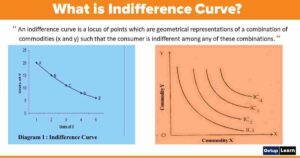Table of Contents
- 1 What is Consumer Behavior?
- 2 Definition of Consumer Behaviour
- 3 Features of Consumer Behaviour
- 4 Nature of Consumer Behavior
-
5 Importance of Consumer Behavior
- 5.1 Modern Philosophy
- 5.2 Achievement of Goals
- 5.3 Useful for Dealers and Salesmen
- 5.4 More Relevant Marketing Programme
- 5.5 Adjusting Marketing Programme over Time
- 5.6 Predicting Market Trend
- 5.7 Consumer Differentiation
- 5.8 Creation and Retention of Consumers
- 5.9 Competition
- 5.10 Developing New Products
- 6 FAQ Related to Consumer Behavior
What is Consumer Behavior?
Consumer behaviour is the study of how individual customers, groups, or organizations select, buy, use, and dispose of ideas, goods, and services to satisfy their needs and wants. It refers to the actions of the consumers in the marketplace and the underlying motives for those actions.
In others words, consumer behaviour can be defined as the behaviour that consumers display in searching for, purchasing using, evaluating, and disposing of products and services that they expect will satisfy their needs.
Consumer Behaviour is a branch that deals with the various stages a consumer goes through before purchasing products or services for his end use.
Consumer behaviour focuses on how individuals make decisions to spend their available resources (time, money, effort) on consumption-related items that include what they buy, why they buy, when they buy it, where they buy it, how often they buy it, how often they use it, how they evaluate it after the purchase and the impact of such evaluations.
The consumer market consists of all individuals and households who buy or acquire goods and services for personal consumption. Human behaviour is not a mechanical process and is also guided by a wide variety of factors. Marketers need to understand these factors to adjust their marketing mix and affect purchases. Buyer behaviour is a study that attempts to understand and predict human action in the buying role.
It has become important under customer-oriented marketing planning and management. Buyer’s market for many products and the growth of consumerism and consumerism and consumer legislation have created special interest in buyer behaviour and the formulation of the marketing mix to respond favorably to the buyer behaviour in the marketplace.
Definition of Consumer Behaviour
Following are the definitions of Consumer Behaviour:
Buyer behaviour is defined as ” as psychological, social and physical behaviour of potential customers as they become aware of, evaluate, purchase, consume and tell others about products and services.”
“Consumer behaviour is a process, and purchase forms one part of this process. There are various endogenous psychological and exogenous environmental factors which influence this process.”
The term consumer behavior refers to the behavior that the consumer display in searching for, purchasing, using, evaluating and disposing of products and services that they expect will satisfy their need.
Schiffman and Kanuck
Features of Consumer Behaviour
These are the features of consumer behaviour mentioned below:
- Buyer behaviour involves both individual (psychological) processes and group (social) processes.
- buyer behaviour is reflected from awareness right through post-purchase.
- Buyer behaviour includes communication, purchasing, and consumption behaviour.
- Buyer behaviour includes communication, purchasing, and consumption behaviour.
- Buyer behaviour includes both consumer, and organisational buyer behaviour.
Nature of Consumer Behavior
Let’s understand the nature of consumer behaviour in detail:
- Influenced by Various Factors
- Undergoes a Constant Change
- Varies From Consumer to Consumer
- Varies From Region to Region and Country to County
- Information on Consumer Behaviour Is Important to the Marketers
Influenced by Various Factors
- Marketing factors such as product design, price, promotion, packaging, positioning, and distribution.
- Personal factors such as age, gender, education, and income level.
- Psychological factors such as buying motives, perception of the product, and attitudes towards the product.
- Situational factors such as physical surroundings at the time of purchase, social surroundings, and time factors.
- Social factors such as social status, reference groups, and family.
- Cultural factors, such as religion, social class—caste, and sub-castes.
Undergoes a Constant Change
Consumer behaviour is not static. It undergoes a change over a period of time depending on the nature of the products.
For example, kids prefer colorful and fancy footwear, but as they grow up as teenagers and young adults, they prefer trendy footwear, and as middle-aged and senior citizens they prefer more sober footwear. The change in buying behaviour may take place due to several other factors such as an increase in income level, education level, and marketing factors.
Varies From Consumer to Consumer
All consumers do not behave in the same manner. Different consumers behave differently. The differences in consumer behaviour are due to individual factors such as the nature of the consumers, lifestyle, and culture. For example, some consumers are technologies.
They go on shopping and spend beyond their means. They borrow money from friends, relatives, and banks, and at times even adopt unethical means to spend on shopping of advance technologies. But there are other consumers who, despite having surplus money, do not go even for regular purchases and avoid the use and purchase of advanced technologies.
Varies From Region to Region and Country to County
Consumer behaviour varies across states, regions and countries. For example, the behaviour of urban consumers is different from that of rural consumers. A good number of rural consumers are conservative in their buying behaviours.
The rich rural consumers may think twice to spend on luxuries despite having sufficient funds, whereas the urban consumers may even take bank loans to buy luxury items such as cars and household appliances. Consumer behaviour may also vary across states, regions, and countries. It may differ depending on the upbringing, lifestyle, and level of development.
Information on Consumer Behaviour Is Important to the Marketers
Marketers need to have a good knowledge of consumer behaviour. They need to study the various factors that influence the consumer behaviour of their target customers.
Importance of Consumer Behavior
Following are the importance of consumer behaviour:
- Modern Philosophy
- Achievement of Goals
- Useful for Dealers and Salesmen
- More Relevant Marketing Programme
- Adjusting Marketing Programme over Time
- Predicting Market Trend
- Consumer Differentiation
- Creation and Retention of Consumers
- Competition
- Developing New Products
Modern Philosophy
Modern Philosophy is concerned with modern marketing philosophy identifying consumers’ needs and satisfying them more effectively than competitors. It makes marketing consumer-oriented. It is the key to success.
Achievement of Goals
The key to a company’s survival, profitability, and growth in a highly competitive marketing environment is its ability to identify and satisfy unfulfilled consumer needs better and sooner than the competitors. Thus, consumer behaviour helps in achieving marketing goals.
Useful for Dealers and Salesmen
The study of consumer behaviour is not useful for the company alone. Knowledge of consumer behaviour is equally useful for middlemen and salesmen to perform their tasks effectively in meeting consumers’ needs and wants successfully. Consumer behaviour, thus, improves the performance of the entire distribution system.
More Relevant Marketing Programme
A marketing programme, consisting of product, price, promotion, and distribution decisions, can be prepared more objectively. The programme can be more relevant if it is based on the study of consumer behaviour. A meaningful marketing programme is instrumental in realizing marketing goals.
Adjusting Marketing Programme over Time
Consumer behaviour studies the consumer response pattern on a continuous basis. So, a marketer can easily come to know the changes taking place in the market. Based on the current market trend, the marketer can make necessary changes in the marketing programme to adjust to the market.
Predicting Market Trend
Consumer behaviour can also aid in projecting future market trends. Marketer finds enough time to prepare for exploiting the emerging opportunities, and/or facing challenges and threats.
Consumer Differentiation
The Market exhibits considerable differentiation. Each segment needs and wants different products. For every segment, a separate marketing programme is needed. Knowledge of consumer differentiation is a key to fit marking offers with different groups of buyers. Consumer behaviour study supplies the details about consumer differentiation.
Creation and Retention of Consumers
Marketers who base their offerings on recognition of consumer needs find a ready market for their products. The company finds it easy to sell its products. In the same way, the company, due to continuous study of consumer behaviour and attempts to meet changing expectations of the buyers, can retain its consumers for a long period.
Competition
Consumer behaviour study assists in facing competition, too. Based on consumers’ expectations, more competitive advantages can be offered. It is useful in improving the competitive strengths of the company.
Developing New Products
The new product is developed in respect of the needs and wants of the target market. In order to develop the best-fit product, a marketer must know adequately about the market. Thus, the study of consumer behaviour is the base for developing a new product successfully.
What is the meaning of consumer behavior?
Consumer behaviour is a process, and purchase forms one part of this process. There are various endogenous psychological and exogenous environmental factors that influence this process.
What is the nature of consumer behavior?
Following are the nature of consumer behavior:
1. Influenced by Various Factors
2. Undergoes a Constant Change
3. Varies From Consumer to Consumer
4. Varies From Region to Region and Country to County
5. Information on Consumer Behaviour Is Important to the Marketers.
What is the importance of consumer behavior?
These are the importance of consumer behavior:
5.1 Modern Philosophy
5.2 Achievement of Goals
5.3 Useful for Dealers and Salesmen
5.4 More Relevant Marketing Programme
5.5 Adjusting Marketing Programme over Time
5.6 Predicting Market Trend
5.7 Consumer Differentiation
5.8 Creation and Retention of Consumers
5.9 Competition
5.10 Developing New Products.













